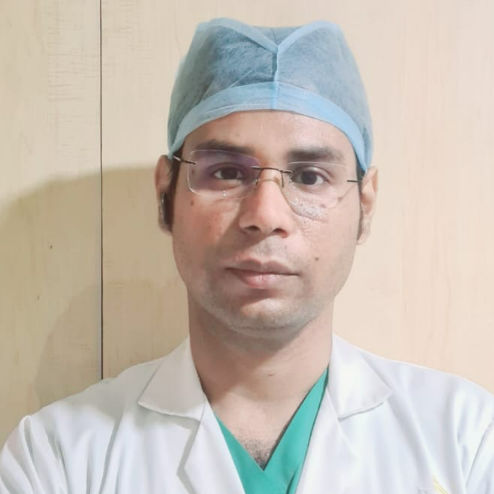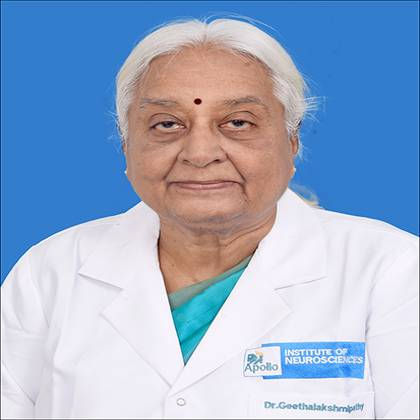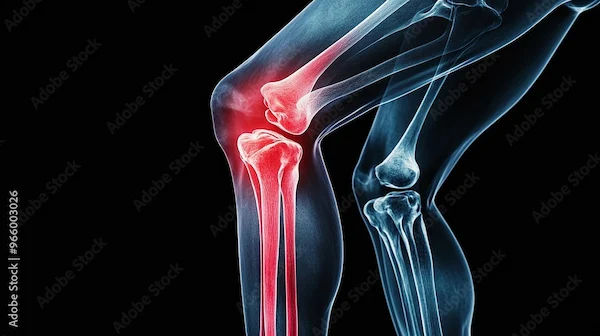Understanding Neurodegenerative Diseases and Their Types
Explore neurodegenerative diseases, their types, common symptoms, causes, and treatment approaches to better understand these progressive conditions affecting the nervous system.

Written by Dr. D Bhanu Prakash
Reviewed by Dr. Mohammed Kamran MBBS, FIDM
Last updated on 28th Aug, 2025

Introduction
Neurodegenerative diseases are a group of conditions that affect the nervous system, leading to the gradual loss of brain function and mobility over time. These diseases can be distressing for patients and their families, but understanding them can help in managing symptoms and improving quality of life.
What Are Neurodegenerative Diseases?
Neurodegenerative diseases occur when nerve cells (neurons) in the brain or nervous system slowly deteriorate and die. This damage affects memory, movement, speech, and other essential functions. While these conditions are often progressive, meaning they worsen over time, early diagnosis and proper care can help slow their progression.
Consult Top Specialists for Personalised Tips
Common Types of Neurodegenerative Diseases
Some of the most common types of neurodegenerative diseases include:
1. Alzheimer’s Disease
What it is: The most common cause of dementia, affecting memory, thinking, and behavior.
Symptoms:
Memory loss (forgetting recent events)
Difficulty in problem-solving or planning
Confusion with time or place
Mood and personality changes
Causes: Buildup of abnormal proteins (amyloid plaques and tau tangles) in the brain.
2. Parkinson’s Disease
What it is: A disorder that affects movement due to the loss of dopamine-producing brain cells.
Symptoms:
Tremors (shaking hands or limbs)
Stiffness and slow movement
Balance problems
Speech and writing changes
Causes: Genetic and environmental factors, though the exact cause is unknown.
3. Amyotrophic Lateral Sclerosis (ALS or Lou Gehrig’s Disease)
What it is: A condition that damages nerve cells controlling voluntary muscles.
Symptoms:
Muscle weakness (starting in limbs or speech muscles)
Difficulty swallowing or breathing
Twitching and cramping
Causes: Mostly unknown, but some cases are linked to genetic mutations.
4. Huntington’s Disease
What it is: A hereditary disorder causing nerve cell breakdown in the brain.
Symptoms:
Uncontrolled movements (chorea)
Cognitive decline (memory and judgment issues)
Mood swings and depression
Causes: A defective gene inherited from a parent.
5. Multiple Sclerosis (MS)
What it is: An autoimmune disease where the immune system attacks the protective covering of nerves.
Symptoms:
Fatigue and numbness
Vision problems
Muscle weakness and coordination issues
Causes: Combination of genetic and environmental triggers.
How Do These Diseases Affect Health?
Neurodegenerative diseases impact daily life by:
Reducing independence (difficulty walking, eating, or speaking).
Causing emotional distress (depression, anxiety, frustration).
Increasing care needs (support from family or caregivers).
Tips for Managing Neurodegenerative Diseases
While there is no cure for most neurodegenerative diseases, these steps can help manage symptoms:
1. Healthy Diet
Eat antioxidant-rich foods (berries, nuts, leafy greens).
Omega-3 fatty acids (fish, flaxseeds) support brain health.
Stay hydrated and limit processed foods.
2. Regular Exercise
Gentle activities like walking, yoga, or swimming improve mobility.
Physical therapy helps maintain muscle strength.
3. Mental Stimulation
Puzzles, reading, and social interactions keep the brain active.
Learning new skills can slow cognitive decline.
4. Medications & Therapies
Some conditions (like Parkinson’s) have medications to ease symptoms.
Speech and occupational therapy improve daily functioning.
5. Emotional Support
Counselling or support groups help patients and caregivers cope.
Mindfulness and relaxation techniques reduce stress.
When to Seek Medical Help?
If you or a loved one experience:
Persistent memory lapses
Unexplained muscle weakness
Difficulty with balance or coordination
Sudden mood or behavior changes
Consult a neurologist for early diagnosis and treatment planning.
How Apollo 24|7 Can Help?
If you suspect symptoms of a neurodegenerative disease, Apollo 24|7 offers:
Expert neurologist consultations (online or in-person).
Diagnostic tests (MRI, CT scans, genetic testing).
Personalized care plans to manage symptoms effectively.
Early intervention can make a big difference. Book a consultation today through the Apollo 24|7 app or website.
Final Thoughts
Living with a neurodegenerative disease can be challenging, but with the right care and support, patients can maintain a good quality of life. Stay informed, follow medical advice, and lean on loved ones for help. Remember, you are not alone; medical professionals and support communities are here to guide you every step of the way.
Consult Top Specialists for Personalised Tips

Dr. Aditendraditya Singh Bhati
Neurosurgeon
18 Years • MBBS(2004), DNB Neurosurgery(2014); MNAMS; Fellow Neuroendoscopy
Delhi
Apollo Hospitals Indraprastha, Delhi
(100+ Patients)

Dr. Ganeshgouda Majigoudra
Neurologist
10 Years • MBBS, MD ( GENERAL MEDICINE) DM (NEUROLOGY)
Bengaluru
Apollo Clinic, JP nagar, Bengaluru

Dr. E Prabhakar Sastry
General Physician/ Internal Medicine Specialist
40 Years • MD(Internal Medicine)
Manikonda Jagir
Apollo Clinic, Manikonda, Manikonda Jagir
(125+ Patients)

Dr Debnath Dwaipayan
Neurosurgeon
9 Years • MBBS, MS(Gen. Surgery), DrNB (Neurosurgery)
Delhi
Apollo Hospitals Indraprastha, Delhi

Dr. Geetha Lakshmipathy
Neurologist
34 Years • MBBS, MD (General Medicine), DM (Neuro)
Chennai
Apollo Hospitals Greams Road, Chennai
(475+ Patients)




